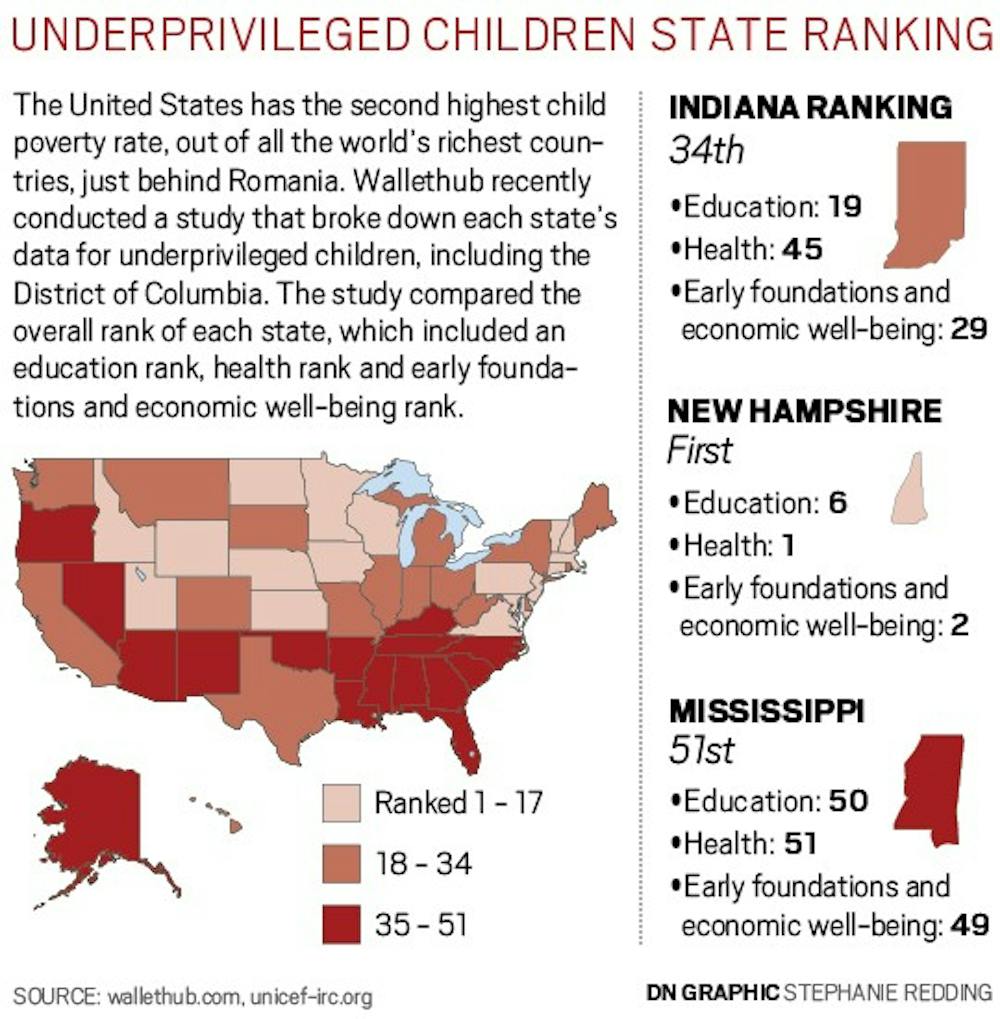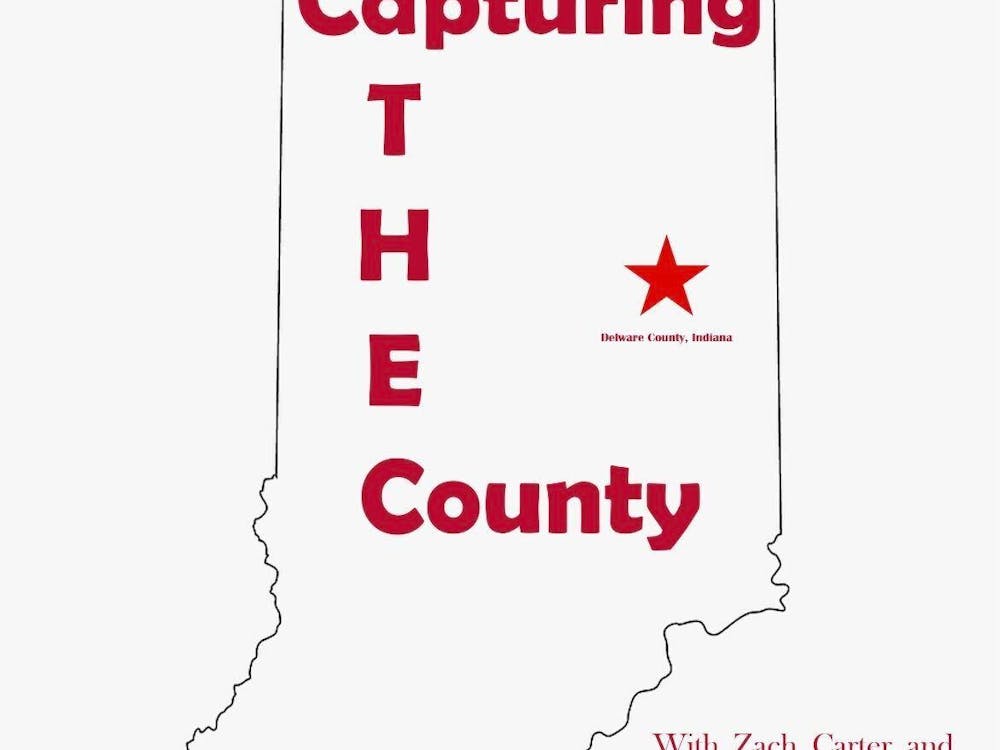A recent study suggests Indiana is not doing well when it comes to serving a vulnerable demographic — children.
The study ranked all 50 states and the District of Columbia from best to worst for underprivileged children, listing Indiana as 34th overall and saddled the state with an even more abysmal health ranking of 45th.
Research was done by Wallet Hub, a consumer research organization, and utilized data from the U.S. Census Bureau. The organization published the study as part of Child Support Awareness Month.

The news did not surprise Doug Fant, an educator at Royerton Elementary School in Muncie.
His 16 years of experience working with children as a kindergarten, first grade and physical education teacher has fine-tuned his ability to identify a student who might be struggling as a result of a poor economic situation. According to Fant, he has been utilizing this skill more than ever in the past five years.
“When you see a child misbehaving, it’s easy to blame it on the parents, but it goes so much deeper than that. There are reasons why kids behave the way they do,” he said
A student preoccupied with issues at home might be more reserved and less likely to participate whereas a child in a happier mood tends to be more responsive said Fant. Sometimes his students might be lacking essential resources too.
“Not only are we teachers, but we’re increasingly becoming caregivers as well, making sure they’re eating, making sure they have the supplies they need,” he said.
In this case, Fant said school employees may help by directing families to charity organizations offering food or backpacks or even by reaching into their own pockets.
Kresha Warnock, Family and Child Program Director at Ball State, said the adverse effects of poverty on a child begin way before homework assignments and waiting for bus stops.
“So much brain development goes on in those first three years of life,” she said.
The chasm of difference between a child at risk and one from a middle-class background has already widened nine months after birth. By 24 months, it’s even larger and spans the range of cognitive, social, behavioral and health outcomes, Warnock said.
Warnock uses the example of talking to a baby to illustrate this disparity. In a middle class culture, families communicate more, she said. They might talk throughout a diaper changing or read to their children often. Even this can have a long lasting effect on a child.
“If I start kindergarten knowing 10,000 words as opposed to 500 words, think about the advantage I have just from making those connections,” she said.
Families in need can seek help from federally funded organizations such as the Head Start Program, said Warnock. Other resources in Muncie include many churches and organizations that provide everything from food to legal advice.
Linda McBride, the pastor for Covenant Partners Ministries in Muncie, coordinates a monthly event called Community Day. At Community Day, visitors receive a free breakfast, haircuts, blood pressure checks and bags of cleaning and personal care items as well as the more traditional sack of food.
Every month, McBride sees people showing up to the church to collect the free resources and services provided. Likewise, every month she sees someone new.
McBride said the bag of groceries handed out at each Community Day probably won’t last more than a week, but she knows it can help.
“Just because you have food stamps doesn’t mean you can feed your family for the entire month,” she said. “Especially if you have children, because we eat every day.”





